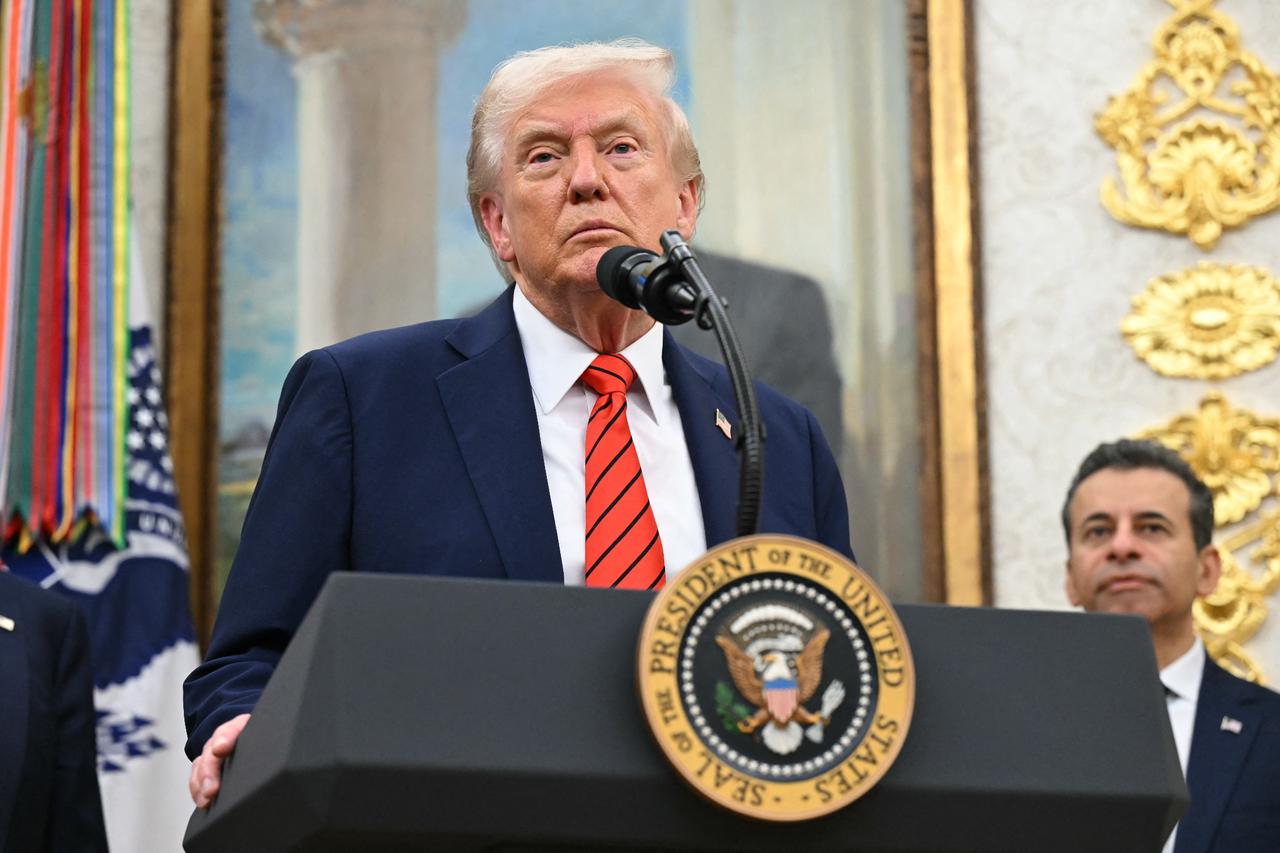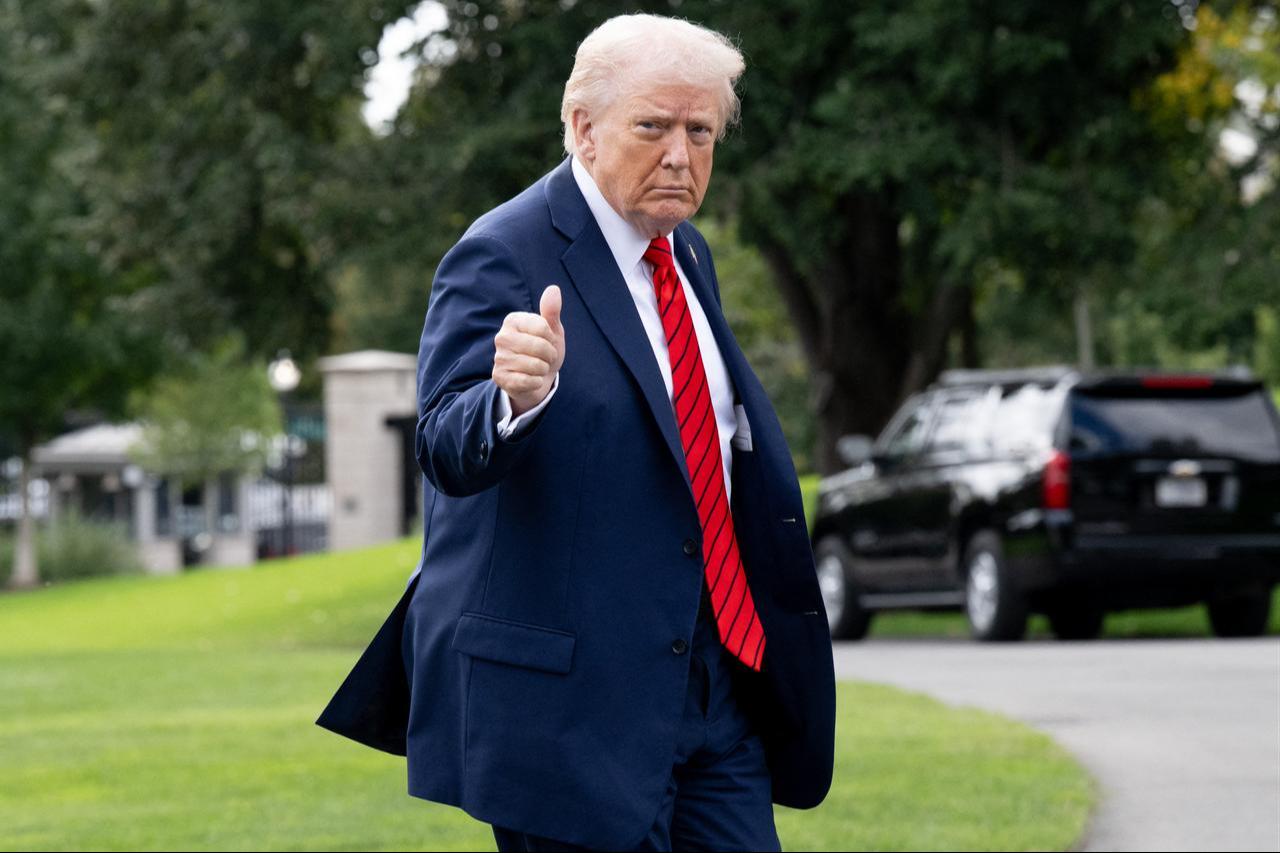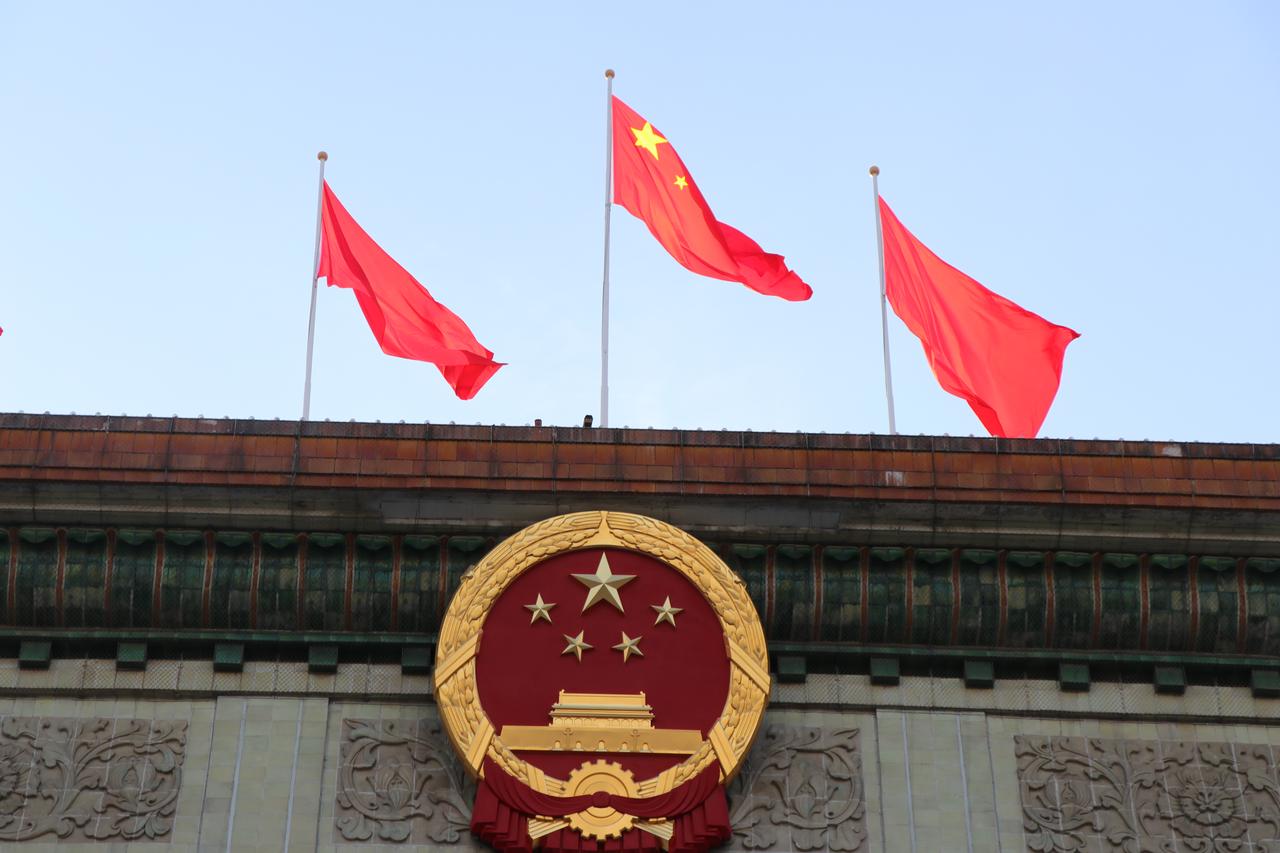
U.S. President Donald Trump said Sunday the United States wants to help China, not hurt it, striking a conciliatory tone days after threatening an additional 100 percent tariff on the world's second-largest economy.
Trump's statements Friday as well as his threat to cancel a meeting with Chinese President Xi Jinping later this month sent Wall Street stocks tumbling into negative territory as traders worried the trade war between Washington and Beijing could reignite.
"The U.S.A. wants to help China, not hurt it," Trump said in Sunday's post on Truth Social, adding that "respected President Xi (Jinping) doesn't want Depression for his country."
Trump said there is no need to worry about China and everything will be on track. "Respected President Xi just had a bad moment. He doesn't want his country to fall into depression, and neither do I. The U.S. wants to help China, not hurt it," Trump said.

Trump, on Oct. 10, threatened to increase tariffs on China after the country imposed restrictions on rare-earth exports. He then announced that starting Nov. 1, the U.S. would impose a 100% customs duty in addition to the tariff it currently pays to China.
"Given China's unprecedented stance, and speaking only on behalf of the U.S., not on behalf of other countries facing similar threats, starting Nov. 1 (or earlier depending on other measures or changes China takes), the U.S. will impose a 100 percent customs duty on top of the tariff it currently pays to China. Additionally, we will impose export controls on all critical software on Nov. 1," Trump said Friday.
Beijing later accused Washington of acting unfairly, with its Ministry of Commerce on Sunday calling Trump's tariff threat a "typical example of 'double standards."
The ministry said Washington had ratcheted up economic measures against Beijing since September. "Threatening high tariffs at every turn is not the right approach to engaging with China," the ministry said in an online statement.

Chinese goods currently face U.S. tariffs of 30% under the levies Trump imposed, while accusing Beijing of aiding the fentanyl trade and of unfair trade practices. China's retaliatory tariffs are currently at 10%.
Rare earths have been a central sticking point in recent trade negotiations between the two superpowers. They are critical to manufacturing everything from smartphones and electric vehicles to military hardware and renewable energy technology, but are produced and processed almost exclusively by China.